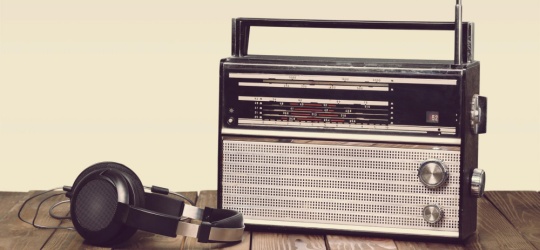The question "when was radio invented" doesn't have a simple answer, as radio emerged through a series of groundbreaking discoveries and innovations spanning several decades. The journey from theoretical concept to practical communication device involved multiple brilliant minds working across different continents.
Pioneers and Breakthroughs: When Was Radio Invented?
The first wireless radio emerged in 1893 when Nikola Tesla demonstrated it in St. Louis, Missouri. Is that when radio was invented? Yes and no – the answer is complicated. The story is more complex and involves multiple inventors. Guglielmo Marconi, often credited as the father of radio, received the first wireless telegraphy patent in England in 1896. Tesla's own patents weren't granted in the United States until 1900, leading to decades of controversy over the true inventor.
The theoretical groundwork for radio began much earlier. In 1864, James Clerk Maxwell published revolutionary theories about electromagnetic waves and their propagation through space. Heinrich Hertz later proved Maxwell's theories correct between 1886 and 1888, demonstrating that radio waves could indeed be transmitted through the air.
A pivotal moment occurred on December 12, 1901, when Marconi achieved the first transatlantic radio transmission, sending signals from Cornwall, England, to Newfoundland, Canada. This historic achievement definitively proved that radio waves could traverse vast distances, opening up unprecedented possibilities for global communication.
The Evolution of Radio: From Morse Code to Digital Age
The early years of radio were dominated by wireless telegraphy using Morse code for ship-to-shore communication. A transformative breakthrough came in 1906 when Reginald Fessenden conducted the first audio transmission, broadcasting speech and music from Brant Rock, Massachusetts.
The 1920s marked radio's entry into mainstream society. The first commercial radio station, KDKA in Pittsburgh, began broadcasting in 1920, followed by WWJ in Detroit. The decade saw rapid growth in radio ownership and programming variety, leading to radio's Golden Age.
During World War I and II, radio proved invaluable for military communications and public information. The post-war period witnessed significant technological advances, including:
1. The development of FM radio by Edwin Armstrong in 1933, offering superior sound quality.
2. The emergence of transistor technology, making radios more portable.
3. The rise of specialized programming formats and music-focused stations.
The digital revolution brought sweeping changes to radio broadcasting, ushering in an era of enhanced audio quality and global accessibility. Digital Audio Broadcasting (DAB) technology emerged, delivering CD-quality sound to listeners and paving the way for clearer, more reliable transmissions. Internet radio streaming further revolutionized the industry, allowing stations to reach audiences worldwide and breaking down geographical barriers. The integration of radio with smartphones and smart speakers has made it more accessible than ever, ensuring its continued relevance in the modern media landscape.
Radio's Enduring Legacy and Future
Despite predictions of its decline, radio has demonstrated remarkable resilience and adaptability. Today, radio continues to evolve through digital transformation and integration with modern technologies.
The journey from "when was radio invented" to its current form showcases humanity's innovative spirit. From Tesla's first wireless demonstration to Marconi's transatlantic signal, from amplitude modulation to digital broadcasting, radio has consistently adapted to changing times while maintaining its core purpose: connecting people through the airwaves.
Radio's evolution continues in the digital age, with new technologies enhancing its capabilities while preserving its fundamental role in mass communication. The medium that began as a scientific curiosity has become an indispensable part of our daily lives, proving that some inventions truly stand the test of time.
Whether you're streaming your favorite station online or listening to traditional broadcasts, you're participating in a technological legacy that began with those early pioneers who dared to imagine wireless communication. The answer to "when was radio invented" may be complex, but its impact on human communication is undeniably profound and lasting.
